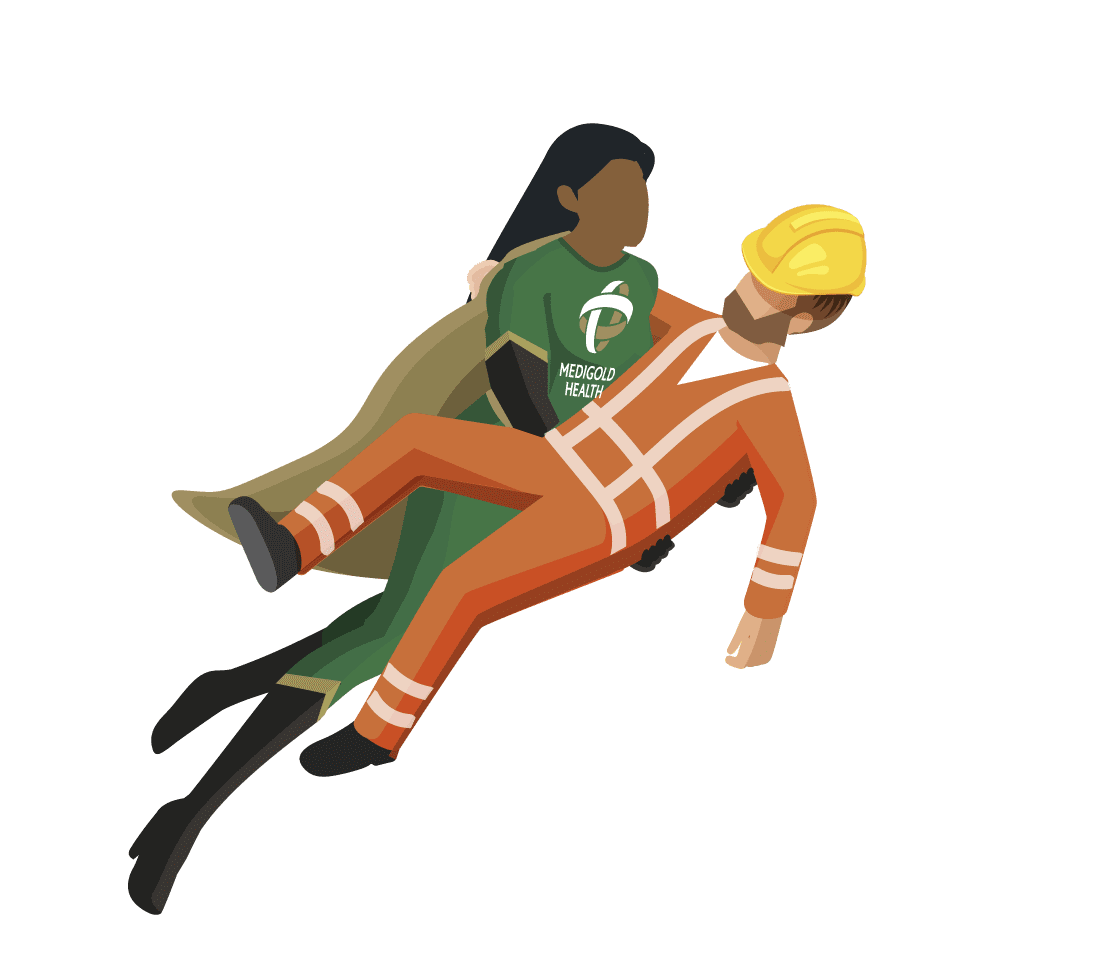
A personal Track Safety (PTS) Certificate is required before any individual is allowed to work on or near a railway line within Network Rail in the UK.
A PTS Medical ensures that railway workers meet the health-related requirements necessary to work on or near a railway line.
Medigold Health are accredited by the Railway Industry Supplier Qualification Scheme (RISQS) for the delivery of our PTS Medicals.

Find out more about our PTS Medicals
Why a PTS Medical?
As per the Railway Group Standard, and to help protect the health of anyone working on or near a railway line who are exposed to obvious and potential hazards to health, we offer a number of rail-specific examinations reflecting the safety-critical nature of the work and the time-bound return to work processes that are so important to TOC productivity
These include:
- Train Drivers TDLCR 2010
- Train Movement RIS-3452-TOM
- Personal Track Safety (PTS) medicals for rail, engineering or construction workers operating on or near active railway lines
- Signal Passed at Dange
- Resumption of Duty Medical
- Special Exam/Report
The Latest from our Blog…
Check out our blog for all of the latest news, events and updates from Medigold Health.
-

Highlights from our 2026 Occupational Health Technician Conference!
At the end of January, we proudly hosted our annual Occupational Health Technician (OHT) Training Conference – two full days dedicated to professional development, shared learning and strengthening the exceptional clinical standards that define Medigold Health. Bringing together colleagues from across the country, the event really showcased the breadth of[...]
Read More -

Reasonable Adjustments Series: Autism
Welcome to the next blog in our Reasonable Adjustments Series! This series explores how small changes can make the workplace more inclusive and productive for everyone. But first – what are reasonable adjustments? Simply put, they’re practical changes, backed by the Equality Act 2010, that remove barriers and make work[...]
Read More -

Can employees refuse a drug and/or alcohol test?
It’s a question we hear a lot: can an employee say no to a drug or alcohol test at work? Whether testing is being considered after an incident, as part of a routine programme, or because there are concerns about someone’s behaviour, a workplace drug or alcohol test can feel uncomfortable for[...]
Read More





